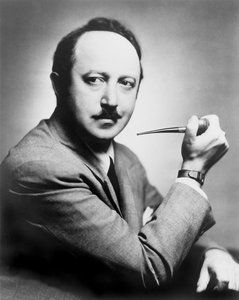A Quote by Aristotle
Philosophy is the science which considers truth.
Quote Topics
Related Quotes
My position is a naturalistic one; I see philosophy not as an a priori propaedeutic or groundwork for science, but as continuous with science. I see philosophy and science as in the same boat--a boat which, to revert to Neurath's figure as I so often do, we can rebuild only at sea while staying afloat in it. There is no external vantage point, no first philosophy.
One can delineate the domain of philosophy however one likes, but in its search for truth, philosophy is always concerned with human existence. Authentic philosophizing refuses to remain at the stage of knowledge […]. Care for human existence and its truth makes philosophy a 'practical science' in the deepest sense, and it also leads philosophy—and this is the crucial point—into the concrete distress of human existence.
The Greek word for philosopher (philosophos) connotes a distinction from sophos. It signifies the lover of wisdom (knowledge) as distinguished from him who considers himself wise in the possession of knowledge. This meaning of the word still endures: the essence of philosophy is not the possession of the truth but the search for truth. ... Philosophy means to be on the way. Its questions are more essential than its answers, and every answer becomes a new question.
All those formal systems, in mathematics and physics and the philosophy of science, which claim to give foundations for certain truth are surely mistaken. I am tempted to say that we do not look for truth, but for knowledge. But I dislike this form of words, for two reasons. First of all, we do look for truth, however we define it, it is what we find that is knowledge. And second, what we fail to find is not truth, but certainty; the nature of truth is exactly the knowledge that we do find.
In philosophy, when we make use of false principles, we depart the farther from the knowledge of truth and wisdom exactly in proportion to the care with which we cultivate them, and apply ourselves to the deduction of diverse consequences from them, thinking that we are philosophizing well, while we are only departing the farther from the truth; from which it must be inferred that they who have learned the least of all that has been hitherto distinguished by the name of philosophy are the most fitted for the apprehension of truth.
Philosophy, for Plato, is a kind of vision, the 'vision of truth'...Everyone who has done any kind of creative work has experienced, in a greater or less degree, the state of mind in which, after long labour, truth or beauty appears, or seems to appear, in a sudden glory - it may only be about some small matter, or it may be about the universe. I think that most of the best creative work, in art, in science, in literature, and in philosophy, has been a result of just such a moment.
Oddly, since by now I've written quite a lot on early modern philosophers, I didn't care for the history of philosophy, which I thought dull and obscure, until I got a minor job writing articles for a children's encyclopedia in the history of science and began to make connections between science and philosophy.
This is an extremely ambitious book. In addition to science and mathematics, Byers brings to bear insights from literature, philosophy, religion, history, anthropology, medicine, and psychology. The Blind Spot breaks new ground, and represents a major step forward in the philosophy of science. The book is also a page-turner, which is rare for this topic.









































